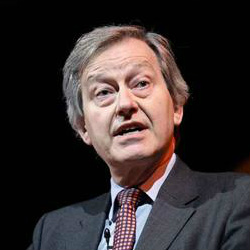Savings made via the Government’s flagship NHS efficiency programme may not be sustainable or yield long-term results, an influential group of MPs has warned.
The House of Commons Health Committee – whose chair is Stephen Dorrell – said commissioners have already made ‘straight-forward’ efficiency savings, but that real ‘care transformation’ to ensure sustainability was lagging behind.
It criticised ‘fragmented’ commissioning and competition regulations as potential barriers to improving NHS sustainability going forward.
The report is a new blow delivered to the QIPP programme, after a recent King’s Fund survey of NHS managers showed that only one in ten NHS finance directors believed their chances of meeting their 2015 QIPP target were better than 50/50.
The QIPP programme, also known as the ‘Nicholson challenge’, set out to find £20bn worth of savings within the NHS between 2011/12 and 2014/2015. Submitting evidence to the committee’s enquiry, the Department of Health said PCTs had achieved £11.8bn of savings over the first two years of the programme.
But in a report published today, MPs concluded that: ‘The NHS has provided savings during the first two years of the programme, but… there is a question mark about how sustainable they are.
‘The straight-forward savings which are possible have now been made [but] the transformation of care that will be required to make the NHS sustainable in the future and able to deal with increasing demand has yet to take place.’
The committee also criticised the Government for a lack of transparency over how the money saved had been put to use, raising the issue that DH handed back billions of unused NHS budget back to the Treasury each year, as revealed by Pulse last year,
The report said: ‘[T]he key question, raised in evidence, is not “what has been saved?” but rather “what has the money saved been spent on?” That is currently not transparent, and more needs to be done to demonstrate what new activity has been possible because of the gains of the efficiency process.’
Pulse October survey
Take our July 2025 survey to potentially win £1.000 worth of tokens












